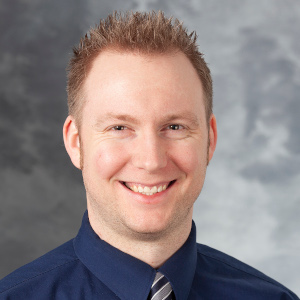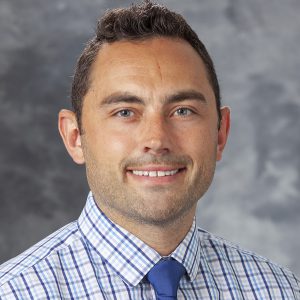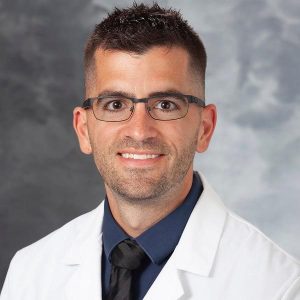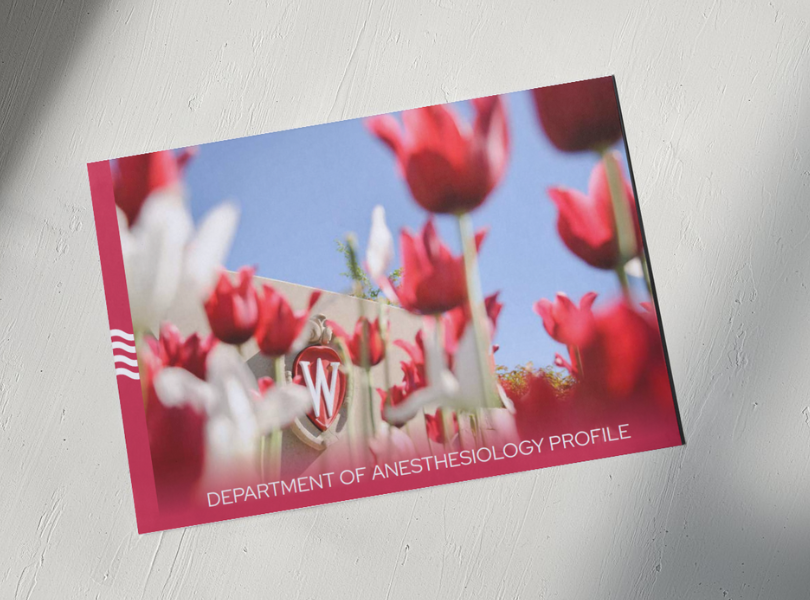The Division of Cardiac Anesthesia offers two ACGME-accredited adult cardiothoracic and vascular anesthesiology fellowship positions:
Cardiac: An active adult cardiac surgical service features coronary revascularization with and without cardiopulmonary bypass, complex valve repair and replacement, ascending and aortic arch surgery under deep hypothermic circulatory arrest, and implantation of ventricular assist devices.
Pediatric Cardiac: A rapidly expanding pediatric cardiac surgical program provides both operative and interventional cardiac treatment of a full gamut of congenital heart diseases.
Vascular: The University of Wisconsin offers an active vascular surgical section including thoracoabdominal aortic surgery and a rapidly expanding endovascular service. Protocols on spinal cord protection were pioneered at our university and are an emphasis in major aortic surgeries and their corresponding anesthetics.
Thoracic: Fellows are exposed to the full range of thoracic surgical procedures, including pneumonectomies, thorascopic procedures, and lung volume reduction surgery.
Transplantation: The University of Wisconsin has an active cardiac and lung transplant program. Cardiac fellows are closely involved in the perioperative care of these complex patients.
Transesophageal Echocardiography: The cardiac anesthesia fellow receives extensive training and experience in echocardiography with specially trained and certified anesthesiologists. Equipment and educational resources are state-of-the-art. Fellows are well prepared for the National Board of Echocardiography PTEeXAM.
Critical Care: Fellows have the opportunity to focus on postoperative care with rotations in the adult cardiothoracic surgical intensive care unit (CTICU). The CTICU is mainly staffed by our department’s critical care anesthesiologists. Fellows get exposure to medically and surgically complex patients.
Mechanical Circulatory Support: Our cardiac surgical care team has access to multiple modalities of mechanical circulatory support that our fellows will routinely deal with. These include VA ECMO, VV ECMO, Intra-aortic Balloon Pumps, TandemHeart, Impella CP, and Impella 5.5.
Perfusion: Interested fellows are provided with an in-depth understanding of the mechanics and physiology of cardiopulmonary bypass by working directly with our experienced, highly trained team of perfusionists.
Cardiac Catheterization and Electrophysiology Laboratory: The University of Wisconsin has a busy cardiac catheterization and electrophysiology service that performs many cutting edge and complex procedural interventions. Procedures include transcatheter aortic valve replacements, MitraClip, AngioVac, initiation of mechanical circulatory support, complex ventricular tachycardia ablations with the assistance of mechanical circulatory support, as well as management of atrial arrhythmias.
Teaching: In addition to developing outstanding skills in independent case management, advanced fellows are provided the opportunity to teach and supervise junior residents performing routine cardiac anesthetics.
This is an accordion element with a series of buttons that open and close related content panels.
Application Guidelines
We utilize the San Francisco Match (https://www.sfmatch.org/) and ask all interested applicants to apply via the SF Match’s Central Application Service (CAS).
Applicants are required to have the following documents in order to apply to programs:
- Complete and submit CAS application form (online);
- Three letters of reference;
- Distribution list and payment.
Interviews will take place February through May for positions starting the following year.
For questions regarding the application process, please contact:
Brandon Russell, GME Program Manager
University of Wisconsin Hospital and Clinics
600 Highland Ave., B6/319
Madison, WI 53792-3272
russell2@wisc.edu
Fellowship Benefits
2024-2025: stipend is PGY5 $83,639
Fellows will be provided with a $2500 academic fund, which can be used for the purchase of education materials, attendance at meetings, and/or to reimburse the cost of board registration. The department will also be providing fellows with the Smith’s textbook of pediatric anesthesia.
Our Graduate Medical Education (GME) office also provides a wellness stipend and generous institutional parental leave policy.
The Department of Anesthesiology also provides financial support to present at national meetings.
Madison, the capital of Wisconsin, offers a quality of life that is second to none. In the past few years, Madison has been recognized as one of the top ten healthiest, most bike-friendly, and most secured cities, as well as one of the top ten places to buy a home and raise a family. Madison is also home to Epic and other technology start-ups, providing a vibrant scene for young professionals.
Apply with San Francisco Match Central Application Service (CAS)
Why Madison?
Life in Madison, Wisconsin
Madison is consistently rated one of the best places in the country to live and play. Madison, a vibrant, picturesque city with a population of just over 250,000, is the capital of Wisconsin and the home of the University of Wisconsin.
Download Department Profile
Learn more about the Department of Anesthesiology and it's commitment to clinical excellence, exceptional education, diversity, equity, and inclusion, and "All Ways Forward," in this 38-page brochure.




